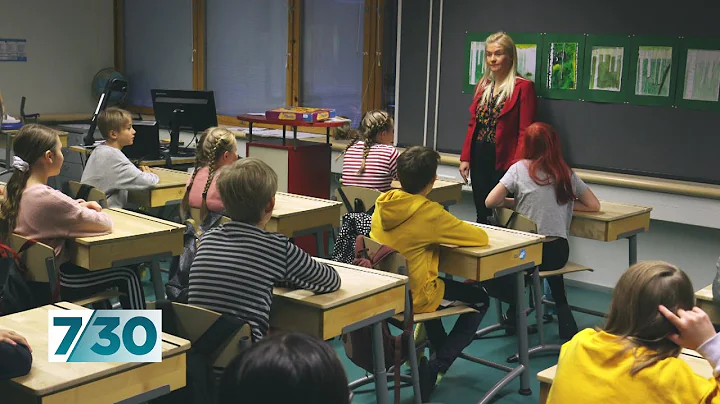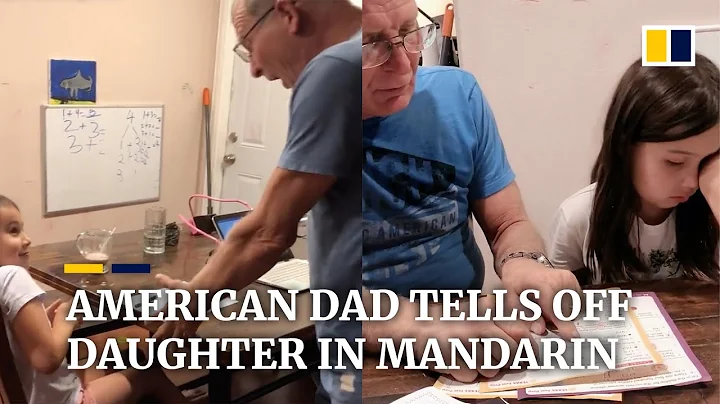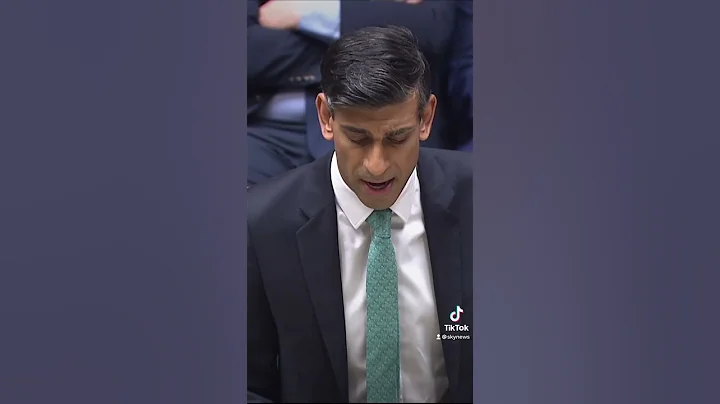Whenever we talk about the education of Chinese youth, many people will think of: piles of homework, frequent exams, heavy schoolbags, lack of sleep, etc.
According to UNICEF survey, Dutch children are the happiest in the world. Let’s take a look at what education is like in the Netherlands now.

Class Schedule
In the Netherlands, two-year-olds go to kindergarten for only three and a half days a week. The purpose is to allow children to initially adapt to collective life.
html went to primary school at the age of 14. Start class at 8:30; eat fruit at 10:00; go home after school at 11:45. After lunch at home, I return to school at 1:15 pm and finish school at 3:15 pm. It is a national law that there is no school every Wednesday afternoon in order to allow children to have free time to develop extracurricular hobbies.
htmlChildren aged 14 to 8, that is, children in grades one to four, in addition to Wednesday afternoon, also enjoy two afternoons of free activities on Monday and Friday.
Although I don’t have much time in school, not all of this time is used in studying. Physical education classes are held twice a week, mostly indoors, with all facilities available. As for handicraft classes, they account for a large proportion, and this is the case until junior high school. Physical education and handicrafts are all included in the assessment.
Almost every child has an extracurricular activity: boys have football, judo, volleyball, tennis, cycling, etc., and girls have horse riding, dancing, painting, illustration, animal protection, etc.

October of each year is designated as "Children's Month" by national law. All major museums, tourist attractions, and train tickets are free for children.
Dutch schools do not have canteens. Parents take students home for lunch after school. Most people ride bicycles, firstly to save the environment and save money, and secondly, they are not far from home.
Well-read Books

Children's books in the Netherlands have nationally unified difficulty levels for children of different ages to choose from. Throughout primary school, there were no fixed Chinese textbooks, only fixed exercise books. Teachers encourage students to read a lot, and the school has a library where students choose their own reading materials.
Libraries across the country are open to children free of charge. The books are arranged in an orderly manner, and audio and video works are all available. During primary school, parents usually take their children to the library to borrow books once a week. The school gives each child a reading bag and the borrowed books can be taken home to read. When it comes to homework, this is it.
In this way, by the time they graduate from elementary school, the children will have read a lot.
The Chinese language assessment method is to list a long vocabulary list and test students' reading skills; in addition, students' reading comprehension is tested, which is divided into 10 levels. Generally speaking, when you graduate from primary school, you can reach the highest level of A10.

Speech ability
Chinese teaching during primary school attaches great importance to the ability to speak in public. Students in small classes often sit in a circle and take turns telling their opinions on a certain event in preparation for the formal speeches that begin in grade 5.
Every school has a stage to cultivate children's ability to express themselves freely in public. This kind of speech starts from the class and can be about reading experience or free topics. After class, I check information online, draw charts, and make beautiful and neat written reports. The school holds performances every month, and students voluntarily sign up to demonstrate their inventions on stage.
Every year before Christmas or summer vacation, the class will write and perform a program. The graduating class even launched a drama masterpiece, and parents were invited to visit the show. A student who cannot express his views fluently in public is considered a failure here, and this is an extremely important language ability that cannot be expressed in grades.
Parent-teacher meeting
Every half-year semester summary, parents will get a semester report, which records in detail the child's performance in school, mainly: whether he can interact with classmates normally, whether he can take the initiative to complete schoolwork, whether he can concentrate, and whether he can communicate with classmates Whether you can express yourself calmly when a quarrel occurs, whether you are confident, whether you do things in an orderly manner, etc. are mainly based on the teacher's observation and evaluation. Whenever we talk about the education of Chinese youth, many people will think of: piles of homework, frequent exams, heavy schoolbags, lack of sleep, etc. According to UNICEF survey, Dutch children are the happiest in the world. Let’s take a look at what education is like in the Netherlands now. Class Schedule In the Netherlands, two-year-olds go to kindergarten for only three and a half days a week. The purpose is to allow children to initially adapt to collective life. html went to primary school at the age of 14. Start class at 8:30; eat fruit at 10:00; go home after school at 11:45. After lunch at home, I return to school at 1:15 pm and finish school at 3:15 pm. It is a national law that there is no school every Wednesday afternoon in order to allow children to have free time to develop extracurricular hobbies. 
htmlChildren aged 14 to 8, that is, children in grades one to four, in addition to Wednesday afternoon, also enjoy two afternoons of free activities on Monday and Friday.
Although I don’t have much time in school, not all of this time is used in studying. Physical education classes are held twice a week, mostly indoors, with all facilities available. As for handicraft classes, they account for a large proportion, and this is the case until junior high school. Physical education and handicrafts are all included in the assessment.
Almost every child has an extracurricular activity: boys have football, judo, volleyball, tennis, cycling, etc., and girls have horse riding, dancing, painting, illustration, animal protection, etc.

October of each year is designated as "Children's Month" by national law. All major museums, tourist attractions, and train tickets are free for children.
Dutch schools do not have canteens. Parents take students home for lunch after school. Most people ride bicycles, firstly to save the environment and save money, and secondly, they are not far from home.
Well-read Books

Children's books in the Netherlands have nationally unified difficulty levels for children of different ages to choose from. Throughout primary school, there were no fixed Chinese textbooks, only fixed exercise books. Teachers encourage students to read a lot, and the school has a library where students choose their own reading materials.
Libraries across the country are open to children free of charge. The books are arranged in an orderly manner, and audio and video works are all available. During primary school, parents usually take their children to the library to borrow books once a week. The school gives each child a reading bag and the borrowed books can be taken home to read. When it comes to homework, this is it.
In this way, by the time they graduate from elementary school, the children will have read a lot.
The Chinese language assessment method is to list a long vocabulary list and test students' reading skills; in addition, students' reading comprehension is tested, which is divided into 10 levels. Generally speaking, when you graduate from primary school, you can reach the highest level of A10.

Speech ability
Chinese teaching during primary school attaches great importance to the ability to speak in public. Students in small classes often sit in a circle and take turns telling their opinions on a certain event in preparation for the formal speeches that begin in grade 5.
Every school has a stage to cultivate children's ability to express themselves freely in public. This kind of speech starts from the class and can be about reading experience or free topics. After class, I check information online, draw charts, and make beautiful and neat written reports. The school holds performances every month, and students voluntarily sign up to demonstrate their inventions on stage.
Every year before Christmas or summer vacation, the class will write and perform a program. The graduating class even launched a drama masterpiece, and parents were invited to visit the show. A student who cannot express his views fluently in public is considered a failure here, and this is an extremely important language ability that cannot be expressed in grades.
Parent-teacher meeting
Every half-year semester summary, parents will get a semester report, which records in detail the child's performance in school, mainly: whether he can interact with classmates normally, whether he can take the initiative to complete schoolwork, whether he can concentrate, and whether he can communicate with classmates Whether you can express yourself calmly when a quarrel occurs, whether you are confident, whether you do things in an orderly manner, etc. are mainly based on the teacher's observation and evaluation.
The academic performance in the report is divided into grades: excellent A, excellent B, passing C, and failing D. You never know where your child will rank in the class, and the Ministry of Education clearly stipulates that ranking is not allowed.
Even on the day when the report was issued, the teacher repeatedly emphasized that the students should go home and hand them over to their parents directly, and were not allowed to look at each other and ask questions, in order to protect those who were left behind and avoid competition.
After parents receive the semester report, they will be invited to the school to talk alone, communicate with each other, raise questions, and explain requirements. This is what is called a parent-teacher conference in Europe. Parents are customers of the school. Sending their children here means that the government will give the school a subsidy, which is also the source of teachers’ wages.
In addition to parent-teacher conferences, if parents have any requests, they can talk to the teacher at any time, which is called a "ten-minute talk." As a foreigner who speaks Chinese at home, I often have to find teachers to communicate after class, such as asking teachers to give my children special language care.

Parents Committee
Each primary school has a Parents Committee, which is elected by parents on a voluntary basis to participate in school management. It can be said that parents and schools consult with each other and run the school together.
Many entertainment projects in the school are funded by parents. Such as sports games, class performances, graduation ceremonies, Christmas parties, cleaning, etc. When visiting other places, parents will pick them up and drop them off in their car.
The school has a special "reading mother" who accompanies children who are behind in reading to read every week. The school library is also managed by parents, who are also responsible for running the school newspaper.
The school regulations clearly stipulate that parents are obliged to assist students. Many enthusiastic parents serve as teaching assistants all year round and contribute money voluntarily, closely linking the three educational links of school, family and society.
Middle school transfer
html When I graduated from elementary school at the age of 112, there was a three-day national exam. Test scores are still secretly written on school reports and not announced publicly. Grades are only used as a reference for students’ destination, accounting for about 40%. Daily grades are also used as an important reference, and the teacher makes the final decision.

Although it is up to you to decide which secondary school to choose, students in the Netherlands are already separated when they enter secondary school. Good students go to VWO, a six-year college preparatory program; lesser students go to HAVO, a five-year college preparatory program; most of them go to vocational secondary school VMBO, a three-year program.
The biggest advantage of the Dutch education system is that it does not bury talents and does not determine the outcome based on one score. After being admitted to a vocational secondary school, you still have the opportunity to enter a college or university. As long as you work hard, it's never too late.
In middle schools, extracurricular activities such as sports and handicrafts are not reduced, but become more colorful. Physical education is still taught twice a week, and is taken seriously and included in exam results. Side courses such as cooking, painting, photography, and philosophy are also offered.
Social support
Looking at primary education in the Netherlands, the focus of school education is not academic performance, but all-round development. Especially those with sound personality, strong body and flexible hands and feet. In terms of academics, teachers focus on helping those who are underachieving and do not encourage those who stand out. In other words, the school cultivates simple and normal people, rather than outstanding talents.
From primary school to junior high school, from toddlerhood at the age of 4 to initial growth at the age of 12, primary and secondary education in the Netherlands always takes the responsibility of protecting students' complete personality and never judges heroes based on scores. Taking all-round development as the starting point and delivering all kinds of qualified talents to the society as the ultimate goal.
At this point, the school and society are closely linked, and the school eventually became the most solid pillar industry in society.
Without qualified schools, there will be no good society. Social quality is not something that comes out of nowhere. Good student quality creates good social quality.
Dutch schools make every effort to cultivate students' basic qualities, especially the minimum moral qualities, including love, respect, responsibility, obligation, dedication, dedication, obedience, law-abiding, etc.
Of course, Dutch primary and secondary education also has shortcomings of one kind or another. As a Chinese mother who has lived in the Netherlands for many years, I know this very well. On the other hand, China’s primary and secondary education model also has many merits.
Of course, Dutch primary and secondary education also has shortcomings of one kind or another. As a Chinese mother who has lived in the Netherlands for many years, I know this very well. On the other hand, China’s primary and secondary education model also has many merits.





















